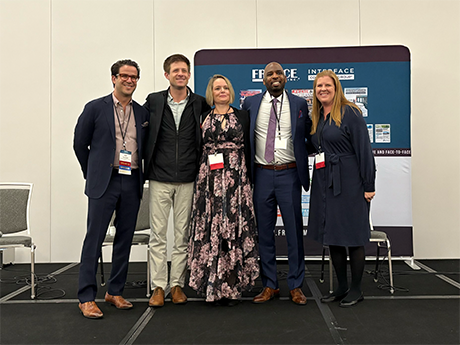ATLANTA — Affordable housing is facing a tumultuous second half of the year. Tariffs on building materials such as lumber, steel and aluminum are slowing development activity as they elevate construction costs. Investment sales are also likely to be impacted by unstable economic conditions in the affordable housing sector, where many transactions are conducted within a limited budget due to the nature of income restrictions for renters.
Amid high costs and trade uncertainty, many investors are making the decision to stay on the sidelines or invest in markets with more stable conditions.
Editor’s note: InterFace Conference Group, a division of France Media Inc., produces networking and educational conferences for commercial real estate executives. To sign up for email announcements about specific events, visit www.interfaceconferencegroup.com/subscribe.
“The most experienced, best qualified buyers are being careful about what they purchase,” said Kyle Shoemaker, a managing director at Affordable Housing Investment Brokerage. The Downers Grove, Illinois-based company arranges acquisitions and dispositions of Section 8, Section 42, low-income housing tax credit (LIHTC) and tax credit housing.
“The affordable housing sector was heated in 2021,” Shoemaker continued. “At that point in time, we were getting more calls than ever from multifamily investors who were interested in entering the affordable housing sector. That slowed down quickly. Some companies have seen success acquiring a handful of properties, but many of these groups are pumping the brakes post-acquisition. I don’t see the new buyers coming to market as much.”
Shoemaker’s remarks came during the investment sales panel at InterFace Affordable Housing Southeast, a networking and information conference held at the Cobb Galleria Centre in Atlanta on Tuesday, May 7. Melissa Blakely, vice president of valuation with CBRE, moderated the panel.
“I’m seeing less supply out there,” added Marco Welch, senior vice president of investments with Marcus & Millichap. “Many owner-operators of affordable housing are opting to simply re-syndicate their properties instead of selling. There are definitely some institutional players out there for those properties, but I don’t see a lot of new buyers.”
Frank McGough, an affordable housing lead with Cushman & Wakefield, attributed investors’ reluctance to enter the affordable housing sector in part to the saturation in the conventional multifamily market over the past five to seven years.
“We’re seeing the boardroom table of LIHTC and affordable housing owners get smaller and smaller,” he explained. “The vastest buyer pool that I’m seeing with active transactions are those that are backing in 30 to 40 years of back-end management fees and tax credits. Those buyers are able to carry out acquisitions because they’re able to infuse additional capital.”
Despite the headwinds, Shoemaker predicted that 2025 will be a good year for transaction velocity in the affordable housing sector. “On the other hand, I have a lot of questions about what 2026 is going to look like,” he cautioned.
Shannon Huffer, vice president of affordable housing with Colliers, was less optimistic about the year ahead. “Trade wars and inflation volatility are causing a lot of ripple effects across the market,” she explained. “It’s going to be a very stormy year ahead, to say the least.”
On the bright side, Huffer did predict a market correction in prices and capitalization rates this year.
“Extend and pretend is over, in my opinion,” Huffer continued. “I valued a dozen deals for banks in the last 30 days, and we’re starting to see more of that volume come through the larger shops that are conducting value estimates for them. We’ve got units that are offline because the capital expenditure was too much to get those units back online. A cap rate adjustment could get them there.”
Welch concurred with Huffer’s assessment, explaining that he is seeing an increase in broker opinions of value (BOVs), which are valuations of a commercial property’s value by a broker on behalf of prospective sellers. While investors have been in a holding pattern for much of 2025, Welch said he expects transactions to pick up and pricing to go down within the year.
“I’ve done a lot of BOVs for lending institutions as well as receivers, and what we’re waiting on is for pricing to correct,” Welch explained. “The first domino will fall once we have assets that start to transact after distress pricing. We’ll see a lot of banks have to mark those properties to market. And once we see that, pricing will definitely start to go down.”
— Channing Hamilton


